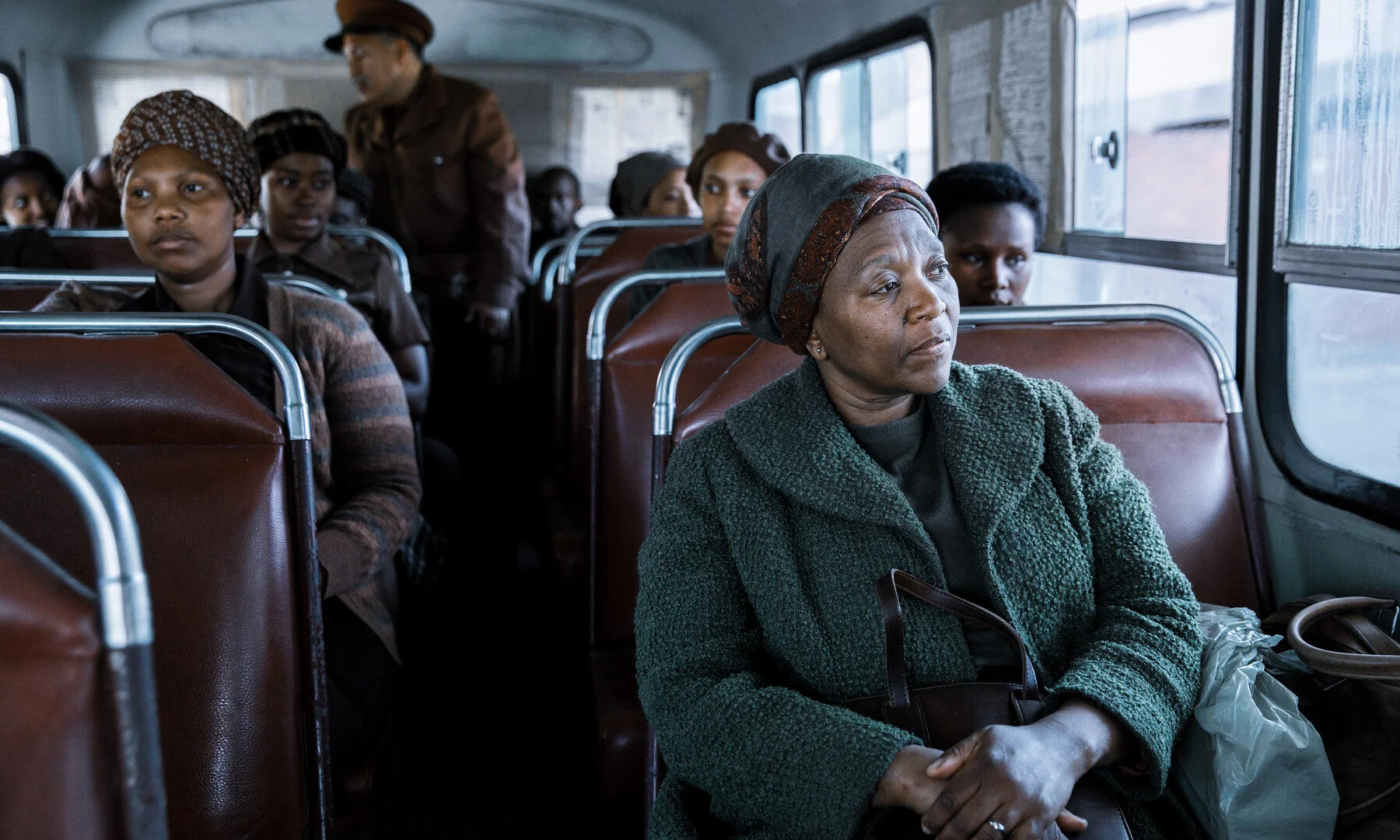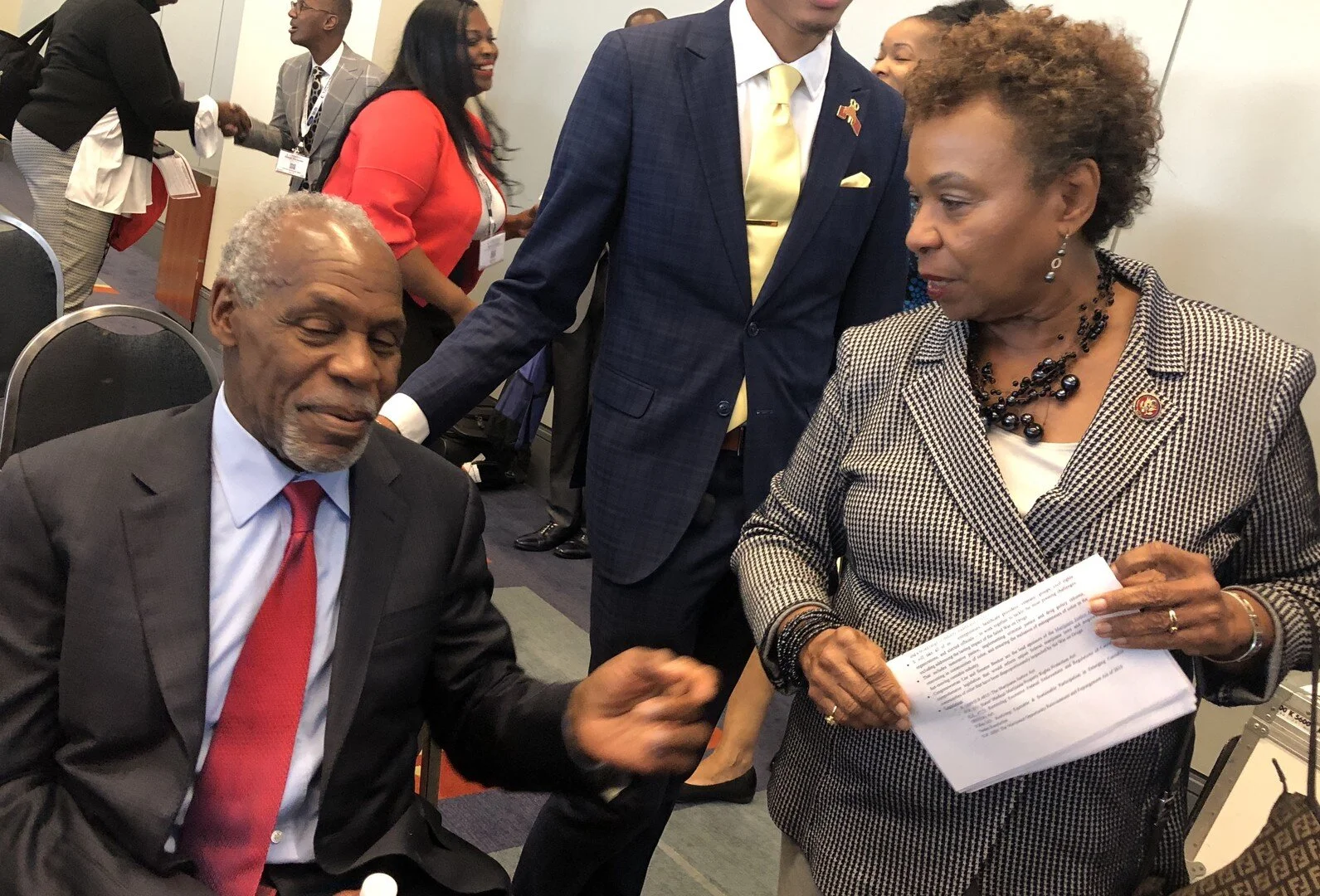Toronto Black Film Festival: An eclectic collection of starkly different Black experiences, connecting the past to the present
By Liam Lacey
In the wake of the Black Lives Matter movement, we are often reminded that Black culture is not monolithic, a truism amply demonstrated by the sprawling selection of films from this year’s Toronto Black Film Festival (Feb. 10-21).
With 154 films from 25 counties, and available for online viewing across Canada, the festival offers exposure to stories that, though sharing a context of colonialism and racism, spin in many directions.
Only 28 of the films are feature-length, and 10 of those are fictional feature-length films.
Clementine Mosimane stars as the title character, a gradually politicized domestic in Poppie Nongena
The festival opener, Foster Boy, a legal thriller about for-profit foster care system, is the most “Hollywood” of these. Executive-produced by Shaquille O'Neal and directed by Youssef Delara, the film is scripted by Jay Paul Deratany, based on his experiences as a Chicago attorney.
Matthew Modine plays Michael Trainer, a right-wing corporate lawyer who is ordered by progressive African-American Judge Taylor (Louis Gossett Jr.) to represent a 19-year-old petty criminal, Jamal (Shane Paul McGhie) in a multi-million-dollar civil lawsuit. The young man is seeking restitution from a for-profit foster care agency, who placed a teen sex-offender in the same foster home as Jamal when he was a child.
Although the case has real-life parallels, both the thriller elements and courtroom scenes strain credibility, including one where Jamal “raps” his testimony from the witness stand. But both McGhie and Modine commit hard in this feel-good tale of learning to see past stereotypes.
PROUDLY SUPPORTS ORIGINAL-CIN
For inspiration grounded in reality, there’s Truth to Power: Barbara Lee Speaks for Me, filmmaker Abby Ginzberg’s documentary celebration of the 74-year-old congresswoman from the Oakland-Berkeley congressional district, California.
The film features a long line of testimonials, from George Bush chief-of-staff Josh Bolton to the late civil rights hero, John Lewis, who portray Lee as the conscience of Congress in her advocacy for civil rights, poverty relief, prison reform and health care. Notably, Lee was the only politician to vote against George Bush’s post-911 blank cheque on the use of military force, yet still managed to personally persuade the president to implement a $15-billion package for African AIDS relief. The one-time single welfare mother was inspired by the example of Shirley Chisholm, and now serves as a model for the women of the Democratic Party’s progressive wing, such as Ayanna Pressley and Alexandria Ocasio-Cortez.
One of Congress’s most influential activists, Truth to Power: Barbara Lee speaks for me.
The winner of a special jury prize for Canadian features at last year’s Hot Docs film festival, Stateless focuses on racial conflict in the Caribbean. The countries of Haiti and the Dominican Republic share the island of Hispaniola, and a history that includes the 1937 massacre of thousands of Haitians living in the Dominican Republic’s northwestern frontier.
Canadian filmmaker and former human rights lawyer Michèle Stephenson’s National Film Board-produced documentary, connects the island’s violent legacy to the Dominican Republic’s 2013 high court decision to strip citizenship of its Haitian descended black minority population, leaving around 200,000 people without a nationality.
Showing the issue on an intimate personal level, Stephenson and her crew shadowed the compelling activist-attorney Rosa Iris Diendomi-Álvarez, who, at risk to her life and family, ran for congress to challenge the law and widespread political corruption. On the other side, we hear from the fervent Dominican nationalist Gladys Feliz-Pimentel, in dialogue that echoes the anti-immigrant rhetoric of the Trump presidency.
Last June, 97-year-old white South African author, Elsa Joubert, was a casualty of the COVID-19 pandemic. Her most famous work was The Long Journey of Poppie Nongena, a well-regarded 1978 novel about a middle-aged Xhosa domestic worker, struggling to maintain her family, after she is declared an illegal resident on the grounds of her husband’s illness.
This film adaptation stars a regal Clementine Mosimane as the care-worn title character who becomes politically awakened by her suffering. The film has an old-fashioned simplicity, with period production values and scenes of street violence that are impressive for the budget. One fascinating element to the story is how liberation became a generational divide, with the youth - including Poppie’s adult son - attacking their parents for complicity with the White regime.
If you’re looking for slightly lighter fare, there’s #LANDoftheBRAVEfilm, a multi-racial African cop drama, featuring a fierce middle-aged woman cop with a glare that could peel paint (a magnificent Elize de Wee). (The Twitter-handle title, by the way, is from the national anthem of Namibia). It’s a potboiler involving a serial killer, a sleazy scientist, a psycho journalist and a protagonist with a dark secret that goes back to the country’s 1990 independence. Unabashedly formulaic and entertaining, the film was the winner for best narrative feature at Tokyo’s Genre Celebration Festival.
The festival’s official closing film is Canadian filmmaker Mia Donovan’s historical documentary, Dope Is Death, focusing on a little-known chapter in New York civic life involving the 1970 take-over of New York’s Lincoln Hospital by Black and Puerto Rican activists. The takeover was an effort to force the establishment of a community drug rehab, managed by Dr. Mutulu Shakur (Tupac’s step-dad), who advocated acupuncture instead of methadone to fight addiction.
Once again, the film ties the present moment of political activism directly to unresolved justice issues of a half-century ago.
The TBFF all access pass is available for $69, or $8 for Feature Films and $12 for Short Film Series. All tickets and Passes can be purchased on the Festival’s website. For a full schedule, including panels, conferences, live performances, master-classes and Family Day (Feb. 15) kid-friendly events, check out the festival’s website.




